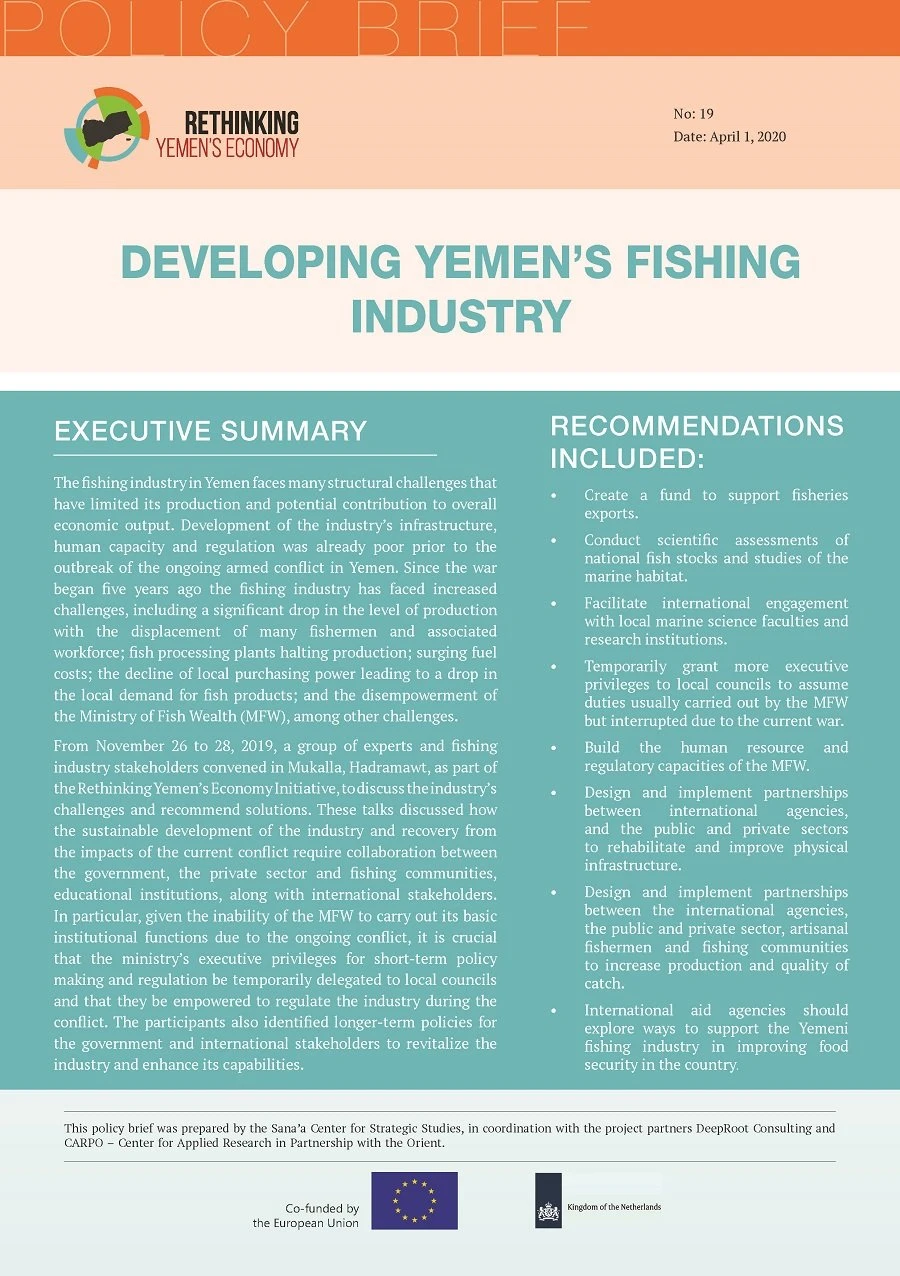From 25-27 January 2021, the seventh Development Champions Forum, held virtually, focused on the dire business environment in Yemen. To help address local economic challenges, the Development Champions discussed the possibility of establishing Local Economic Councils. According to their analysis, between the community-level local development committees and the Supreme Economic Council on the national level, a space exists for a governorate-level body to drive development by guiding investment to serve local needs and strengthen ties between the governorates and the private sector.
The Brussels MENA Briefing: The Gulf Cooperation Council at 40 – Opportunities and Challenges for the EU
June 16, 2021
On June 16, the Center for Applied Research in Partnership with the Orient (CARPO) and Stimson Europe hosted their twelfth “Brussels MENA Briefing” – a series of after-work briefings on the Middle East and North Africa (MENA) region – on “The Gulf Cooperation Council at 40: Challenges and Opportunities for the European Union (EU)”
Speakers included Najla al-Qassemi, Director Global Affairs Division, B’huth Dubai Public Policy Research Center, and Sebastian Sons, Researcher at CARPO. The discussion was moderated by Wael Abdulshafi, Research Analyst at the Stimson Center.
Read morePriorities for the Recovery and Reform of the Electricity Sector in Yemen
Poor electricity services in Yemen, even before the war, have been one of the key barriers to sustainable economic development and basic service provision (e.g., water supply, health care, education). This paper assesses the power supply system status prior to the war and subsequently discusses the impact of the war on electricity sector performance, followed by an identification of the key barriers faced by the sector. It concludes with the identification of the top priorities for restoring electricity sector services and reforming the sector after the war.
From Messenger to Host
Iraq as a Hub for Regional Dialogue
by Kawa Hassan, Adnan Tabatabai and Desirée Custers
Reports of a meeting held in Baghdad on the 9th of April 2021, between Iranian and Saudi security and intelligence officials, may herald a rare positive development in a region characterized by deep mutual mistrust, ongoing armed conflict, and proxy wars.
Read moreBrussels MENA Briefing: Egypt in the Eastern Mediterranean
April 14, 2021
On April 14, the Center for Applied Research in Partnership with the Orient (CARPO) and the Stimson Center Europe hosted the eleventh “Brussels MENA Briefing”—a series of after-work briefings on the Middle East and North Africa (MENA) region—on “Egypt in the Eastern Mediterranean”.
Speakers included Dr. Ahmed Kandil, Senior Research Fellow and Head of the Energy Studies Program at the al-Ahram Center for Political and Strategic Studies, and Hafsa Halawa, independent consultant, Visiting Fellow at the Middle East and North Africa Program of the European Council on Foreign Relations and Non-resident Fellow at the Middle East Institute. The discussion was moderated by Desirée Custers, Research Assistant of the Middle East and North Africa Program at the Stimson Centre.
Read moreSolar-Powered Irrigation in Yemen: Opportunities, Challenges and Policies
Yemen is one of the most water-scarce countries in the world. Its agricultural sector is the dominant user of groundwater resources, accounting for around 90 percent of total consumption. Due to the current crisis, fuel required for pumps has become scarce and very expensive; as a result, solar energy has begun to play a role in the extraction and supply of groundwater for irrigation. However, there is concern about possible negative consequences of this new technology. This Policy Brief examines the current trend of solar-powered irrigation system (SPIS) use in Sana’a Basin, identifying the pros and cons of this approach. It proposes governance and policy recommendations for overall water management and for future studies and regulation of SPIS-driven groundwater use.
Brussels MENA Briefing: Lebanon at a Crossroads: Looming State Collapse and Prospects for External Engagement
March 17, 2021
On March 17, 2021 Stimson Europe and the Center for Applied Research in Partnership with the Orient (CARPO) hosted their tenth Brussels MENA Briefing titled “Lebanon at Crossroads: Looming State Collapse and Prospects for External Engagement”, on the political, economic, and social crisis in Lebanon. This was the first Briefing hosted by the new Middle East and North Africa Program launched by the Stimson Center in March 2021, and located at Stimson’s new permanent presence in Brussels, Belgium. The Brussels MENA Briefings are a continuation of a series of discussion previously conducted by the EastWest Institute (EWI).
The Briefing started with an in-depth analysis of the current situation in Lebanon, with one speaker emphasizing the lack of progress in the investigation into the Beirut blast of August 4, 2020. This unprecedented, massive explosion led to at least 200 deaths and was caused by a large amount of ammonium nitrate stored in a port warehouse without proper safety measures. The speaker highlighted that the judge leading the investigation was dropped from the case in February 2021, after he had charged the caretaker prime-minister and three former ministers with negligence. The opaque investigation is seen as symptomatic of the country’s current predicament, namely lack of accountability of the ruling elite.
Read moreLocal Security Governance in Yemen in Times of War
by Mareike Transfeld, Mohamed al-Iriani, Maged Sultan and Marie-Christine Heinze
After six years of war, state institutions in Yemen have fragmented along multiple fault lines. The security sector is no exception. Given their role as central nodes of the country’s security governance structure, this Policy Report explores governorate-level Security Committees in three governorates that have been particularly affected by violence and institutional fragmentation: Ta‘iz, al-Hudayda and Aden. Next to seeking to understand the institutional set-up and functions of the Committees, questions guiding this Report are how the Committees have evolved in the context of state fragmentation and what, if any, capacities they have to play a potential role in local-level mediation (for instance, regarding humanitarian access) or transitional security governance arrangements.
view YPC/CARPO Report
‘Broken People Can’t Heal a Nation.’ The Role of Arts in Peacebuilding in Yemen
by Yazeed al-Jeddawy, Maged al-Kholidy and Kate Nevens
This Report looks at how the arts and peacebuilding have historically intersected in Yemen, and how traditional arts are alive today and are being used to promote peace and war. It demonstrates the variety of ways in which the arts promote and educate on the values of peace, equality and cultural diversity while also being a tool for documenting life during war, telling untold stories and preserving collective memory. It also highlights the use of art for advocating against violence and human rights violations, for supporting the psychosocial wellbeing of traumatized people, and for rebuilding relationships in communities torn apart by the war. The Report concludes with recommendations for a number of different ways in which the arts can make a direct and indirect contribution to peacebuilding in Yemen.
view CARPO / YPC / YWBOD Report
view printer-friendly version
New Project Launched: Global Autocratic Collaboration in Times of COVID-19
There is strong empirical evidence that COVID-19 acts as a booster for processes of global autocratization in which autocratic protagonists present themselves as more effective role modelsin fighting the pandemic than the ‘liberal script’ of Western societies. This project aims at explaining these corridors of autocratic collaboration based on the example of Sino-Gulf relations that challenge Europe’s and Germany’s international alliances andpartnerships. The project consists of two research blocs: Firstly, it deals with the traveling of autocratic practices and asks how global autocratic collaboration manifests itself in times of crises. Secondly, the project addresses questions of competition for China’s favor:How are regional actors competing in terms of their ‘special relations’ with China?
The project duration is from February 2021 until August 2022. If you want to get further information please contact the project manager Tobias Zumbrägel or visit the project website.
Post COVID-19: A Potential for Green Recovery in the Arab Gulf States
by Aisha Al-Sarihi
The novel coronavirus pandemic has disrupted the GCC’s focus on environmental sustainability projects, as shoring up economies and protecting human health have become top priorities for governmental countermeasures. This Brief argues that associating COVID-19 economic recovery packages with measures aimed to safeguard the environment and tackle climate change, towards a so-called ‘green recovery’, will not only ensure long-term resilience and sustainability of economies as countries recover from the pandemic, but also boost economic activity, generate income and create jobs.
view CARPO Brief
view printer-friendly version
Impacts of the War on the Telecommunications Sector in Yemen
The telecommunications and information technology sector in Yemen is the second largest source of public revenue after the petroleum sector, and contributes important work opportunities, whether directly or indirectly, through its connections to other sectors of the national economy. Some of the most important challenges of the sector are the unsuitability of the legal and institutional regulatory environments; fragmentation of public entities in the sector; the lack of separation between political, regulatory and operational roles within the sector; and the reliance on a weak and fragile infrastructure to provide these services. This Policy Brief identifies urgent as well as medium to long-term policies and programs to address these and other challenges identified in the paper.
Brussels MENA Briefing: Kuwait and the post-Sheikh Sabah Era
December 1, 2020
On December 1, the EastWest Institute (EWI) and the Center for Applied Research in Partnership with the Orient (CARPO) hosted the ninth “Brussels MENA Briefing”—a series of after-work briefings on the Middle East and North Africa (MENA) region—on “Kuwait and the post-Sheikh Sabah Era”.
Speakers included Vice Admiral (ret.) Ahmad Al-Mulla, advisor to the Kuwaiti Ministry of Defense, and Dr. Courtney Freer, assistant professorial research fellow at the Middle East Center of the London School of Economics. Well-known experts on the Persian Gulf region and members of the European policy community virtually attended this briefing, which was held under the Chatham House Rule.
Read moreBrussels MENA Briefing: The Biden Administration’s Middle East Policy and Transatlantic Relations
November 17, 2020
On November 17, the EastWest Institute (EWI) and Center for Applied Research in Partnership with the Orient (CARPO) hosted their eighth “Brussels MENA Briefing”—a series of after-work briefings on the Middle East and North Africa (MENA) region—on the recent election of Joe Biden as U.S. president-elect and the changes his administration could bring to both the United States’ own Middle East policy, as well as its transatlantic relations with the European Union (EU) vis-à-vis the Middle East.
Speakers included Cameron Munter, former U.S. ambassador and former president of the EastWest Institute, and James Moran, associate senior fellow at the Center for European Policy Studies (CEPS). The discussion was moderated by Wael Abdul-Shafi, EWI MENA program associate.
Read moreBrussels MENA Briefing: The Economic Dimensions of the Conflict in Yemen
October 6, 2020
The seventh edition of the Brussels MENA Briefing, co-hosted by the EastWest Institute (EWI) and the Center for Applied Research in Partnership with the Orient (CARPO), in partnership with the Rethinking Yemen’s Economy initiative, was dedicated to the economic impact of the ongoing conflict in Yemen—a war that started in 2014/15 and has since turned the country into the world’s worst humanitarian crisis according to the UN.
The Rethinking Yemen’s Economy initiative aims to contribute to peacebuilding and conflict prevention, economic stabilization and sustainable development in Yemen by building consensus in crucial policy areas through engaging and promoting informed Yemeni voices from all backgrounds (the “Development Champions”) in public discourse on development, economy and post-conflict reconstruction in Yemen, and by positively influencing local, regional and international development agendas. It is implemented by CARPO, DeepRoot Consulting and the Sanaa Center for Strategic Studies and is generously funded by the European Union and the Embassy of the Kingdom of the Netherlands to Yemen.
Read moreEconomic Priorities for a Sustainable Peace Agreement in Yemen
The Development Champions Forum stresses that the sustainability of a peace agreement in Yemen will, amongst others, depend on two critical insights: First, in a conflict that is largely over access to resources, the issues of distribution and control of those resources can make or break peace. Second, where peace agreements lack provisions that create overall economic stability, warfare can resume during the fragile implementation period. This infographic summarizes the Development Champions’ key recommendations on economic provisions that need to be included in the peace agreement.
This infographic is based on RYE Policy Brief 20.
Reconfigurations in West Asia and North Africa (WANA)
When: Nov 19th 2020; 14:45-18:30 CET
The region that spans West Asia and North Africa (WANA) is in a process of a profound transformation. Despite their heterogenous character, all WANA countries experience social, (geo)political, environmental and economic challenges they need to overcome; albeit in different degrees. The current COVID-19 pandemic acts as an accelerator to this development while at the same time exposing the high vulnerability of the region.
CARPO’s first virtual research forum aims to address these reconfigurations in the region. With our speakers and audience, we not only plan to discuss some of the most pressing threats, including geopolitical shifts, questions of a sustainable development and more widespread social contestation, but we will also elaborate on the interplay of the different contexts (national, regional and global) in which these developments take place.
Read moreYemen’s Accelerating Economic Woes during the COVID-19 Pandemic
Since early 2015, Yemen has been almost completely dependent on three external sources to secure foreign currency inflows and stimulate economic activity: foreign humanitarian aid, Saudi financial support to the internationally recognized government, and – by far the most significant – remittances from Yemeni expatriates, most working in Saudi Arabia. All three of these foreign currency sources have dramatically declined in 2020 because of the global COVID-19 pandemic. The current acute shortage of foreign currency has profound implications for the value of Yemen’s domestic currency, and the country’s ability to finance fuel and basic commodity imports. This is likely to lead to the rapid intensification of the humanitarian crisis. This White Paper presents policy recommendations to address this situation for relevant national and international stakeholders.
Brussels MENA Briefing: Jordanian Foreign Policy in Light of Regional Geopolitical Shifts
September 8, 2020
On September 8, the Center for Applied Research in Partnership with the Orient (CARPO) and the EastWest Institute (EWI) hosted their sixth “Brussels MENA Briefing”—a series of after-work briefings on the Middle East and North Africa (MENA) region—on the topic of “Jordanian Foreign Policy in Light of Regional Geopolitical Shifts.”
Speakers included Dr. Amer Al Sabaileh, professor at the University of Jordan and well-known security and political analyst, and Dr. Edmund Ratka, designated head of the Amman Office of the Konrad Adenauer Foundation. The discussion was moderated by Wael Abdul-Shafi, EWI MENA program associate.
Microfinance in Yemen
Since its introduction to Yemen in 1997, microfinance has been viewed as a strategic tool to alleviate poverty and reduce unemployment, for it provided a means for the financial inclusion and economic empowerment of small and micro entrepreneurs by expanding financial services to them. However, persistent challenges facing the microfinance industry have stunted its development, reach within the population, and overall socioeconomic impact. To better place the industry to achieve its socioeconomic aims in the near term and contribute to Yemen’s recovery post-conflict, the Development Champions Forum puts forth several recommendations in four areas, namely, capacity building, financing, program design, and research.
This infographic is based on RYE White Paper 06.
Brussels MENA Briefing: How to Rescue Sudan’s Transition Process
July 7, 2020
On July 7, the Center for Applied Research in Partnership with the Orient (CARPO) and the EastWest Institute (EWI) hosted their fifth “Brussels MENA Briefing”—a series of after-work briefings on the MENA region—focusing on how to rescue Sudan’s transition process, as well as the role the international community can play in Sudan’s political transition.
Speakers included Yasir Zaidan, lecturer of international affairs and security studies at the National University of Sudan, and Dr. Annette Weber, senior fellow at the Africa and Middle East division of the German Institute for International and Security Studies (SWP) in Berlin. EWI’s Vice President of the MENA program, Kawa Hassan, served as moderator.
Developing Yemen’s Fishing Industry
Yemen’s fisheries sector holds untapped promise in contributing to the national economy, with a coastline of more than 2,500 kilometers and rich fishing grounds offshore. Yet the sector has long faced many structural challenges that have limited its production and potential contribution to overall economic output, which have been exacerbated during the ongoing conflict. This infographic provides an overview of the industry’s most important challenges as well as recommendations about how the sector could be developed now and in the future.
This infographic is based on RYE Policy Brief 19.
Deterioration of the Foreign Exchange Rate of the Yemeni Rial
The Development Champions Forum held multiple online discussions in the period from 20-24 June 2020 to discuss the reasons behind the recent deterioration in the foreign exchange rate of the Yemeni rial. The Champions also discussed possible immediate interventions that can be applied by the concerned parties to curb the rial’s depreciation against foreign currencies. This Flash Report presents a summary of those discussions and the resulting recommendations.
Brussels MENA Briefing: New Iraqi Government in Place: Challenges and Opportunities for Iraq in its Neighborhood
June 9, 2020
On June 9, the Center for Applied Research in Partnership with the Orient (CARPO) and the EastWest Institute (EWI) hosted their fourth “Brussels MENA Briefing”—a series of afterwork briefings on the MENA region—focusing on challenges facing the new Iraqi government, as well as the role the European Union (EU) can play in supporting the new government in Baghdad.
Speakers included Sajad Jiyad, visiting fellow at the European Council on Foreign Relations (ECFR) and former managing director of the Al-Bayan Center for Planning and Studies based in Baghdad, and Daniela Verena Huber, head of the Mediterranean and Middle East Program of the Istituto Affari Internazionali (IAI). EWI’s Vice President of the MENA program, Kawa Hassan, severed as moderator.
The Looming Climate Peril. Sustainable Strategies and Environmental Activism in the Middle East and North Africa
by Tobias Zumbrägel
Taking the viewpoint of ‘political ecology’, this first issue of the newly created CARPO Sustainability Series highlights the social and political implications of sustainable transformation across the broader Middle East and North Africa (MENA) region. Overall, it aims to achieve four goals: (a) to provide a comprehensive overview of existing research and avenues of thought; (b) to supply a cross-sectoral analysis across the MENA region, rather than in-depth single case studies; (c) to uncover broader implications and dialectic relationships between sustainability and political power constellations; and (d) to sketch out some potential future developments and dynamics over the coming years.
view CARPO Study
view printer-friendly version
Annual Report 2019
Beginning of December 2019, CARPO celebrated its fifth anniversary. So in addition to a look back at our activities of the past year, in this Annual Report we will also reflect on five years of CARPO’s existence. And we do look back in pride on our evolution since we first set out! When we, the members of CARPO’s Executive Board, decided to establish Germany’s first Middle East-focused think tank, the type of projects we had in mind then are exactly what we are implementing today: result-oriented contributions to debates on the Middle East in Europe and beyond. From the onset, we have dedicated our work to enhancing dialogue and knowledge transfer between stakeholders in Europe and the Orient at the nexus of research, consultancy and exchange.
Economic Priorities for a Sustainable Peace Agreement in Yemen
The sustainability of a peace agreement in Yemen will, amongst others, depend on two critical insights: First, in a conflict that is largely over access to resources, the issues of distribution and control of those resources can make or break peace. Second, where peace agreements lack provisions that create overall economic stability, warfare can resume during the fragile implementation period. At the sixth Development Champions Forum in Amman, Jordan, from 25 to 27 January 2020, the Development Champions therefore focused on identifying urgent macroeconomic, fiscal, and monetary issues that pose a direct threat to the successful implementation of any peace agreement in Yemen. This Policy Brief summarizes their key recommendations on economic provisions that need to be included in the peace agreement.
Download the Brief in English or Arabic
Brussels MENA Briefing: The Status Quo of the Libya Conflict: Is the Berlin Process Obsolete?
May 5, 2020
On May 5, the Center for Applied Research in Partnership with the Orient (CARPO) and the EastWest Institute (EWI) hosted their third “Brussels MENA Briefing,” a series of after-work briefings on the MENA region, on the state of affairs of the ongoing Libyan Civil War.
Speakers included Anas El Gomati, founder and director of the Sadeq Institute, and Kristina Kausch, senior resident fellow at the German Marshall Fund of the United States. CARPO’s CEO Adnan Tabatabai served as moderator.
The Role of the Private Sector in Peacebuilding in Yemen
by Tarek Barakat, Ali al-Jarbani and Laurent Bonnefoy
This Brief analyzes the state of the private sector in Yemen during the ongoing war and explores its potential to contribute to the country’s peace requirements. It presents challenges entrepreneurs face and the potential contribution of these in sectors that are central to the construction and sustainability of peace. It highlights the fact that their actions and capacity to offer jobs and revenue to the Yemeni population are constrained by the fragmentation of authority and the resultant lack of transparency. It also demonstrates that the focus on regional and international aid has left many entrepreneurs feeling abandoned and helpless.
view CARPO Brief in English or Arabic
view printer-friendly version in English or Arabic
Brussels MENA Briefing: Post-Sultan Qaboos Oman: Transition Opportunities and Challenges
April 8, 2020
On April 8, the EastWest Institute (EWI) and the Center for Applied Research in Partnership with the Orient (CARPO), hosted the second “Brussels MENA Briefing,” a series of after-work briefings on the MENA region, this time focusing on Oman in the post-Sultan Qaboos era. Invited speakers were Dr. Yousuf Hamed al Balushi, CEO of Smart Investment Gateway and Dr. Cinzia Bianco, Visiting Fellow on Europe and the Gulf at the European Council on Foreign Relations and Senior Analyst at Gulf States Analytics. The Briefing was held online due to the COVID-19 pandemic, and moderated by Kawa Hassan, EWI’s Vice President of the Middle East and North Africa program.
Media as a Driver of (Dis)Unity in West Asia and the Arabian Peninsula
October 24th 2019, Bonn
In recent years, discussions about the role of the media for societal dynamics and civil society activism in West Asia and the Arabian Peninsula (WAAP) have emphasized that, on the positive side, ordinary citizens have much better access to information and can easier connect, mobilize and coordinate societal activities. On the negative side, however, governments and various interest groups (some even violent) use social media platforms to advance their own agenda, spread misinformation or attract followers. Both developments have made media an increasingly important player in WAAP. It is thus important to look into how media actors themselves see their roles in such a context, and whether they see media as a driver of unity or disunity – especially in today’s interconnected supranational media landscape. Furthermore, It should be discussed whether or not there is (or should be) a way to empower the unifying role media can play.
To discuss these questions, CARPO invited three speakers from West Asia and the Arabian Peninsula to share their views on the subject matter.
Brussels MENA Briefing: Iran After Parliamentary Elections
March 11, 2020
CARPO’s inaugural “Brussels MENA Briefing” focuses on Iran’s parliamentary elections and the resulting domestic implications and consequences for Iranian foreign relations.
On March 3, the Center for Applied Research in Partnership with the Orient (CARPO) and the EastWest Institute (EWI), launched its “Brussels MENA Briefing” series with the topic of the recent parliamentary elections in Iran. Dr. Azadeh Zamirirad from the German Institute for International and Security Affairs (SWP) and Adnan Tabatabai from CARPO led the discussion, with EWI’s Wael Abdul-Shafi serving as moderator.
The Role of Civil Society in Peacebuilding in Yemen
by Abdulkarim Qassim, Loay Amin, Mareike Transfeld and Ewa Strzelecka
The current political and economic conditions in Yemen make it difficult for CSOs to continue functioning on an effective level, while a lack of human and organizational capacity are hampering project results. Nevertheless, Yemeni CSOs contribute to peace requirements in various sectors and remain an important actor in the Yemeni civic sphere. In a context in which conflict parties are not willing to compromise and media contributes to escalating violence, actors that uphold the principles of human rights, political participation and peace are most likely to be found in the realm of civil society. For civil society to be able to contribute to peacebuilding and future reconstruction efforts, now is the time for international organizations to support CSOs and invest seriously into their human and organizational capacity building.
view CARPO/Itar Brief in English or Arabic
view printer-friendly version in English or Arabic
Microfinance in Yemen. An Overview of Challenges and Opportunities
This White Paper explores the historic development of Yemen’s microfinance industry and its players, as well as the impacts of the ongoing conflict. This analysis is followed by recommendations that address four specific areas – capacity building, financing, program design and research – to help create a more conducive operating environment for microfinance overall. The objective is to better place the industry to achieve its socioeconomic aims in the near term and contribute to Yemen’s recovery post conflict.
The Role of Youth in Peacebuilding in Yemen
by Maged al-Kholidy, Yazeed al-Jeddawy and Kate Nevens
Despite its major transformative potential, local level youth work is often overlooked by mainstream international discourses on national level peace processes and violent conflict. This Brief sheds light on young peoples’ activism before and during the war, the challenges they are currently facing, their visions for the future of Yemen and the kind of support they need. The contributions of young men and women to the economy, politics, culture and society, security and justice, education and the environment show how youth are laying the groundwork for peace and social cohesion in their communities.
view CARPO/YWBOD Brief in English or Arabic
view printer-friendly version in English or Arabic
The Role of the Media in Peacebuilding in Yemen
by Fatima Saleh, Scott Preston and Mareike Transfeld
The increased political capture of the Yemeni media since 2014 has reinforced diverging political discourses and has contributed to polarization across society and to political fragmentation. Practitioners face steep challenges in composing professional stories. Journalists are subject to harassment, intimidation, abduction and violence. Yet, Yemeni journalists remain hopeful of the prospect of media reform and are eager to detail the prerequisites for proactive change. Encouraging the development of independent news outlets, independent funding and capacity-building activities could enable the Yemeni media to contribute to better mutual understanding, de-escalation and the requirements for peace.
view CARPO/YPC Brief in English or Arabic
view printer-friendly version in English or Arabic
Developing Human Capital
Human capital in Yemen has long been at the lowest levels across all indicators due to the successive conflicts in the country and the weak investment in human development. Over five years since the onset of the ongoing war in Yemen, human capital accumulation has continued to regress. This video emphasizes that human capital is the foundation of development and the essence of the economic prosperity of future generations and stresses that continued neglect of investment in human capital will inevitably continue to undermine sustainable development in Yemen.
This infographic is based on RYE Policy Brief 18.
China’s Strategy in the Persian Gulf. A Balancing Act between Riyadh and Tehran [in German]
by Julia Gurol and Jacopo Scita
This Brief discusses the repercussions of geopolitical developments on China’s strategy in the Persian Gulf. It is argued that China is pursuing strategic hedging by attempting a risky political balancing act in order to prepare for a possible escalation. This Brief is a slightly edited German translation of the authors’ contribution ‘China’s Persian Gulf strategy: Keep Tehran and Riyadh content‘ on the IranSource Blog of the Atlantic Council, which was first published on 24 January 2020.
view CARPO Brief
view printer-friendly version
Developing Yemen’s Fishing Industry
This policy brief summarizes discussions regarding Yemen’s fishing industry at a ‘Rethinking Yemen’s Economy’ workshop held in al-Mukalla, Yemen, on November 26-28, 2019. The workshop participants, among them numerous stakeholders in the fishing industry from across Yemen, agreed that given the inability of the Ministry of Fish Wealth to carry out its basic institutional functions due to the ongoing conflict, it is crucial that the ministry’s executive privileges for short-term policy making and regulation be temporarily delegated to local councils and that they be empowered to regulate the industry during the conflict. The participants also identified longer-term policies for the government and international stakeholders to revitalize the industry and enhance its capabilities.

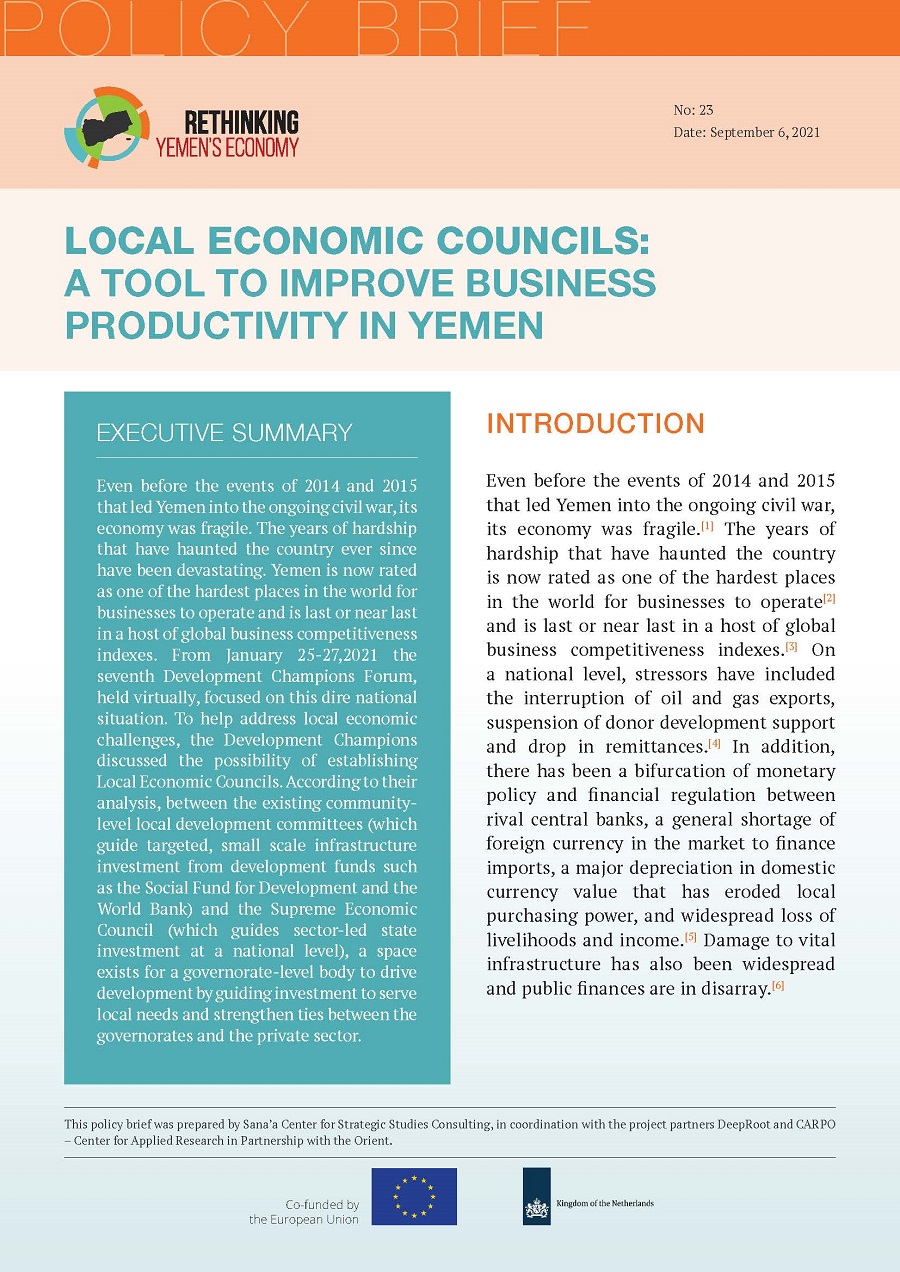
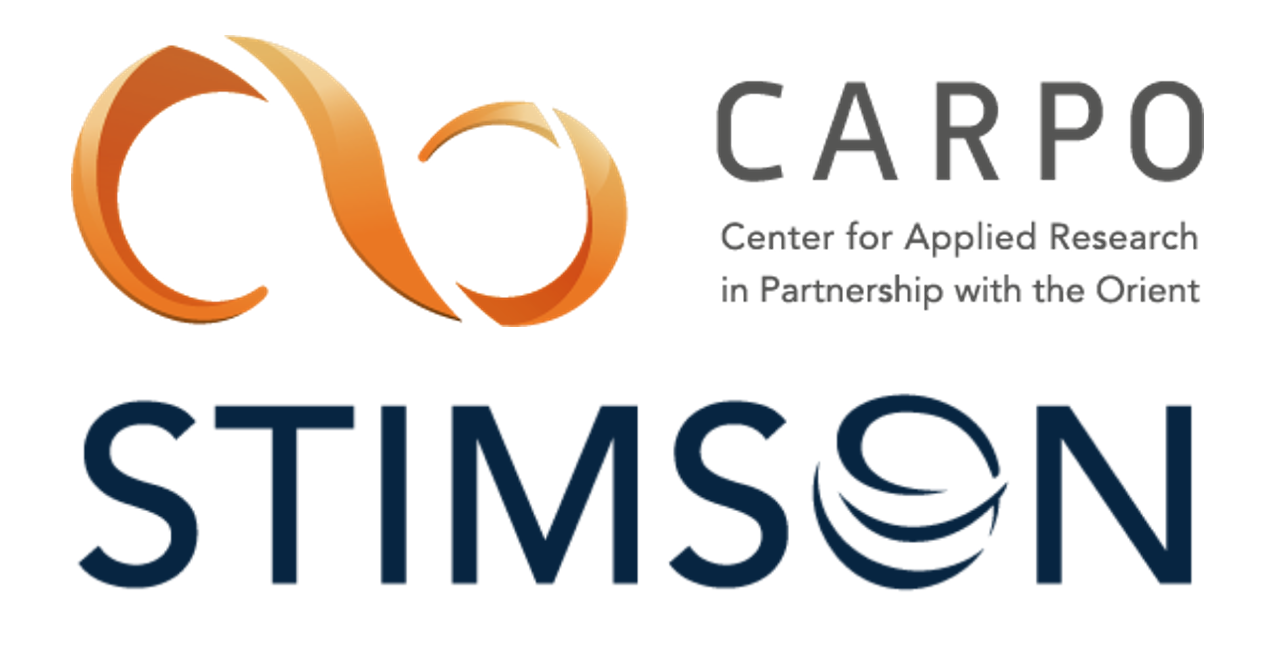

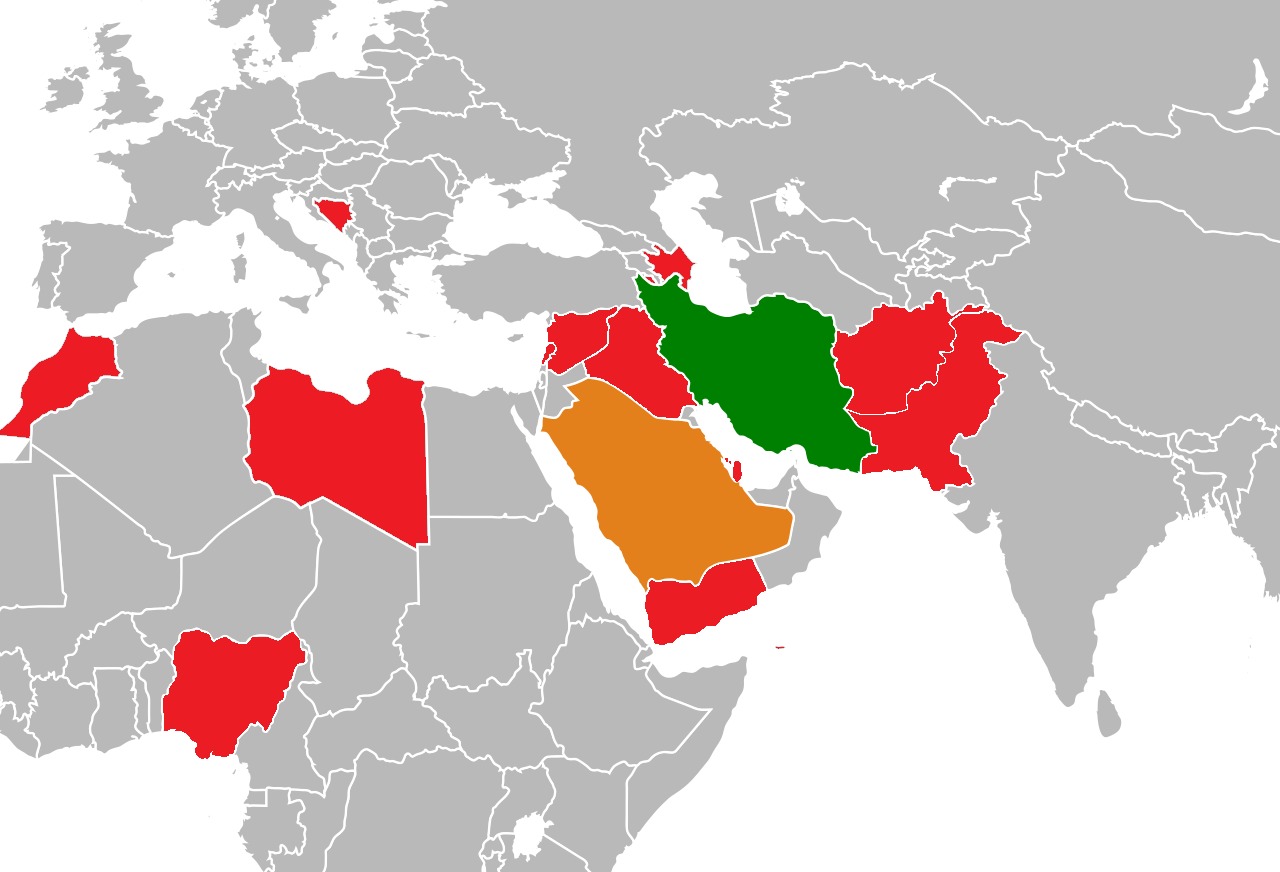

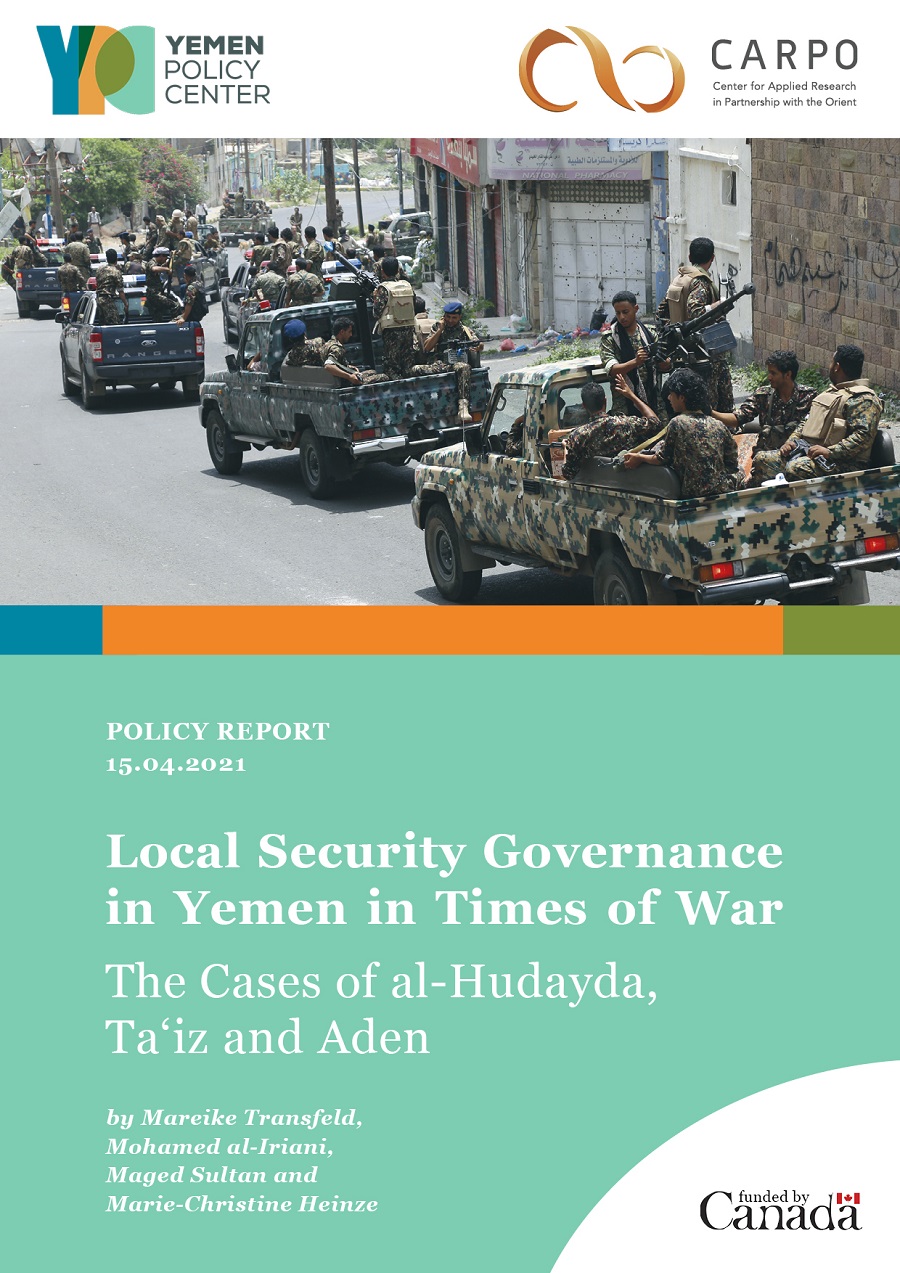
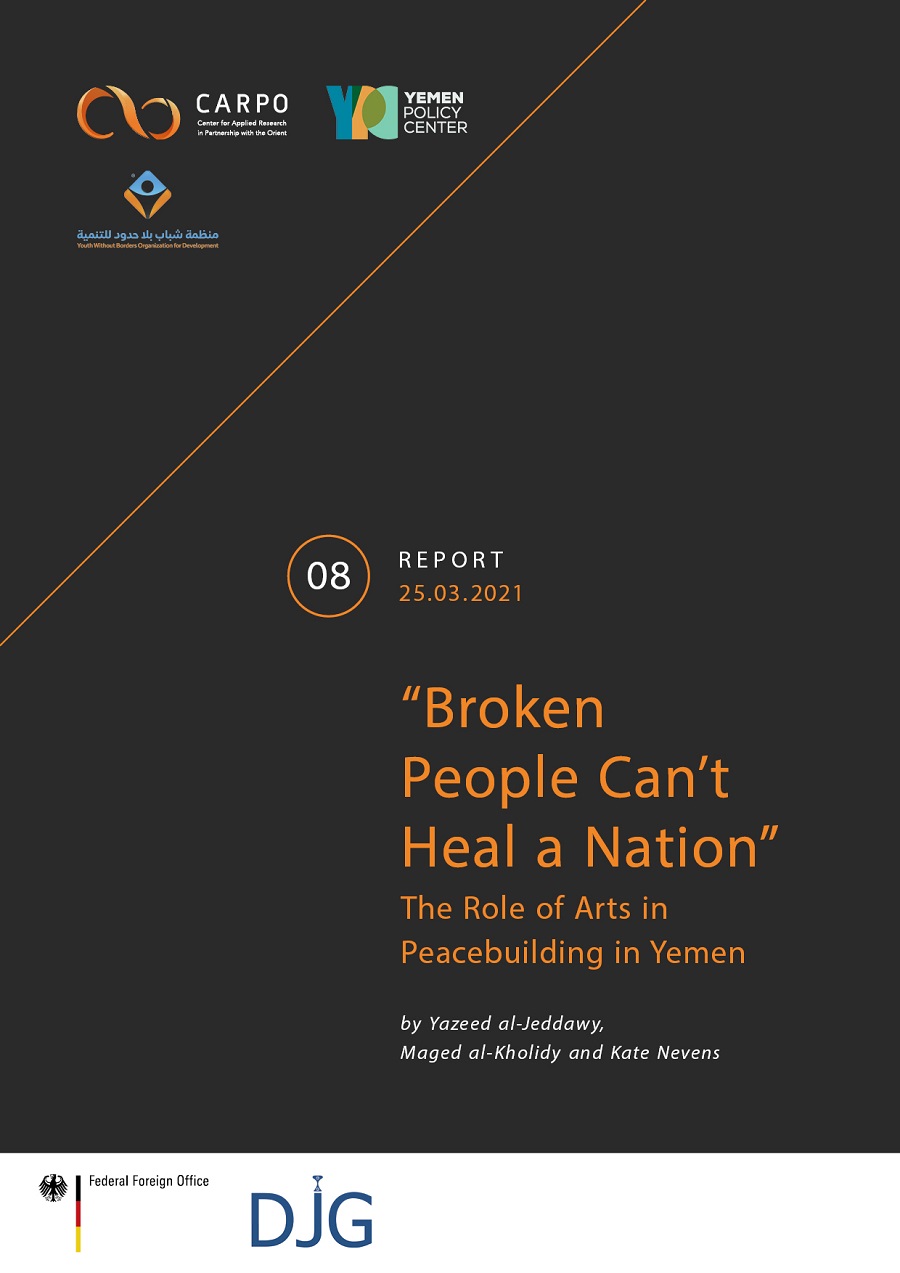
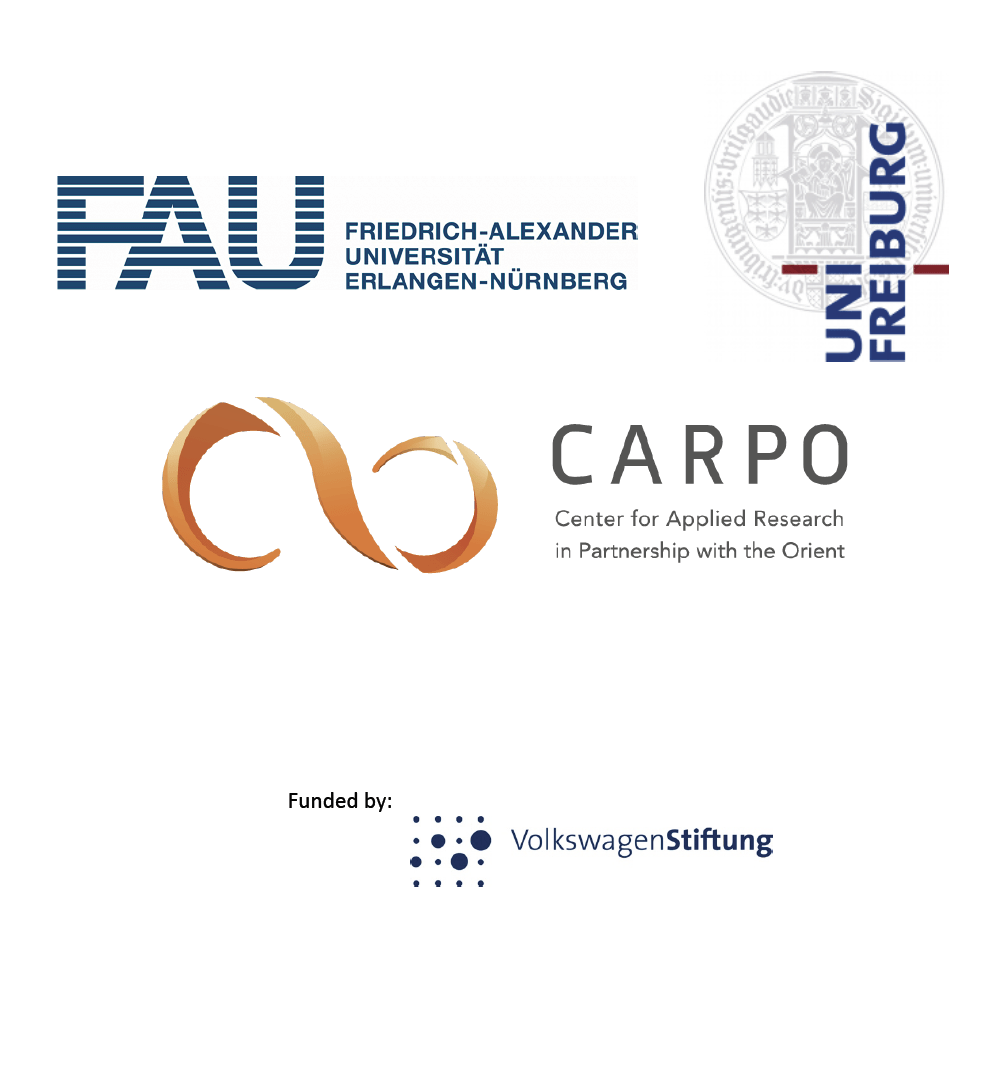
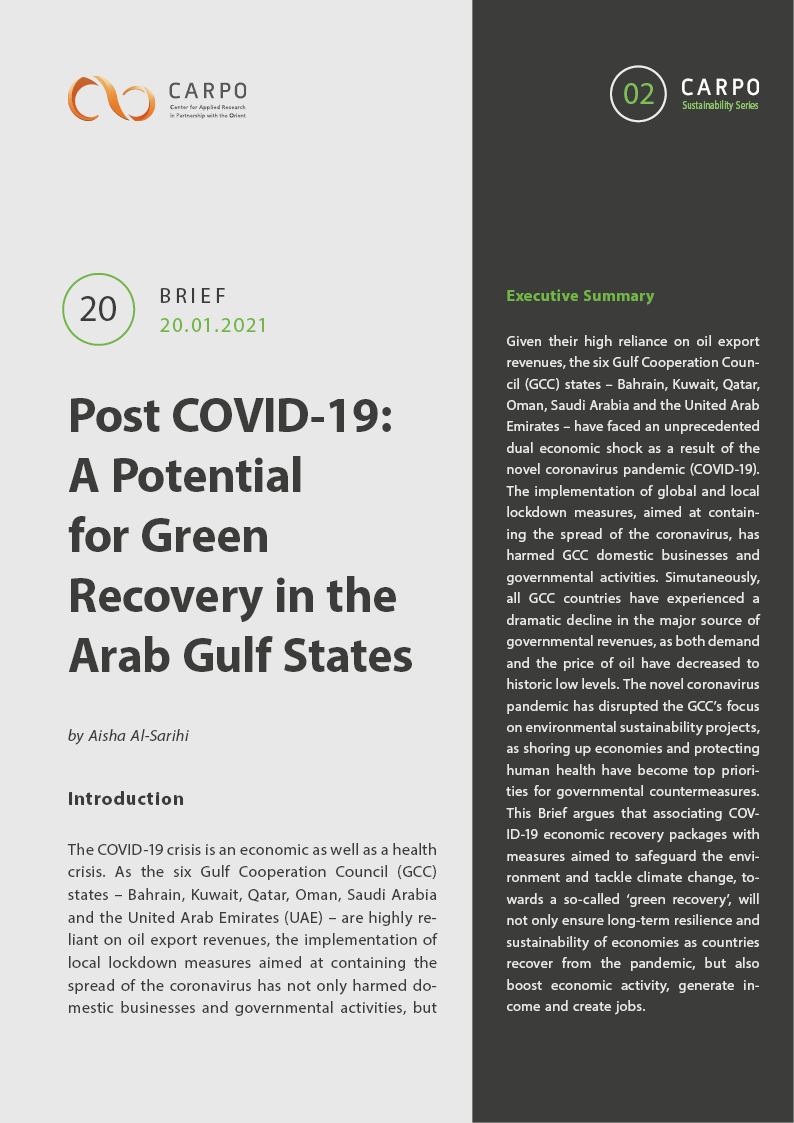

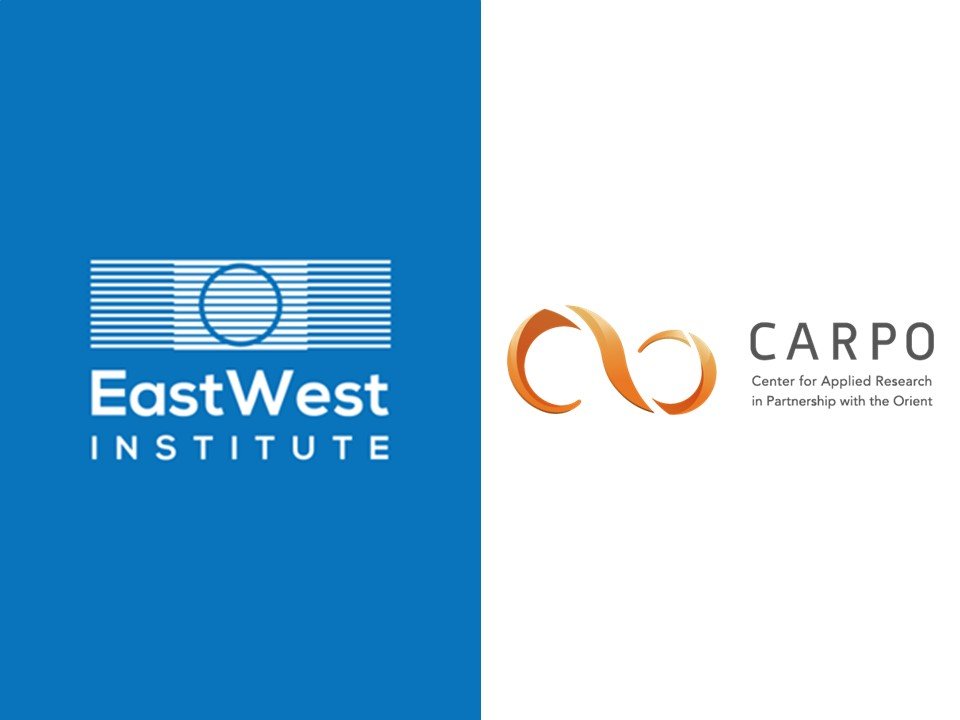
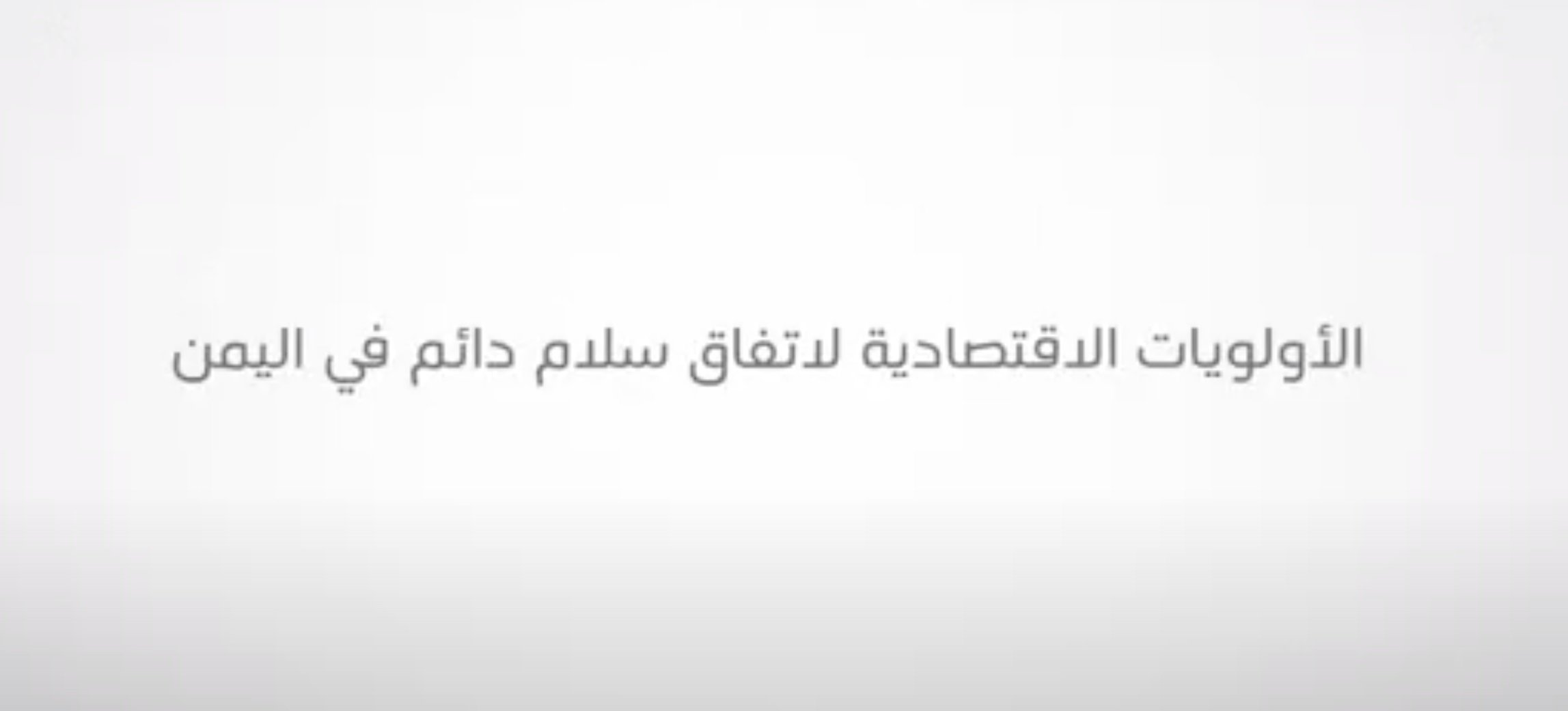
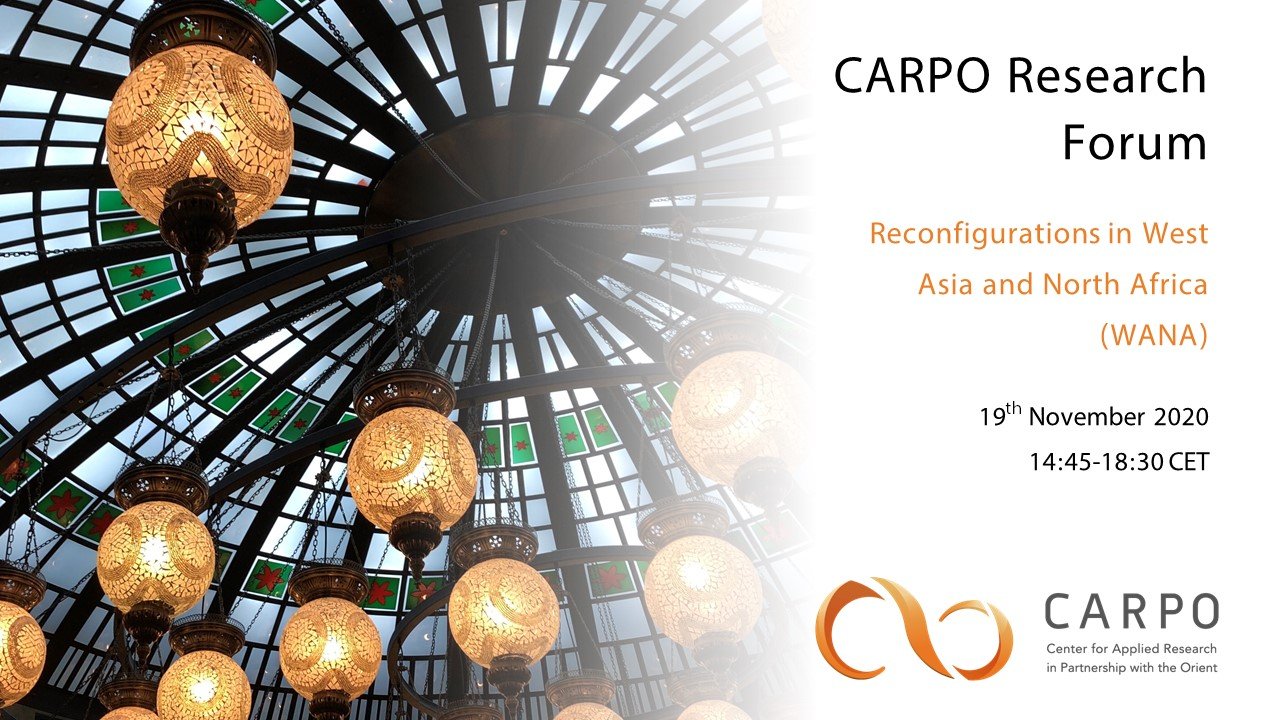
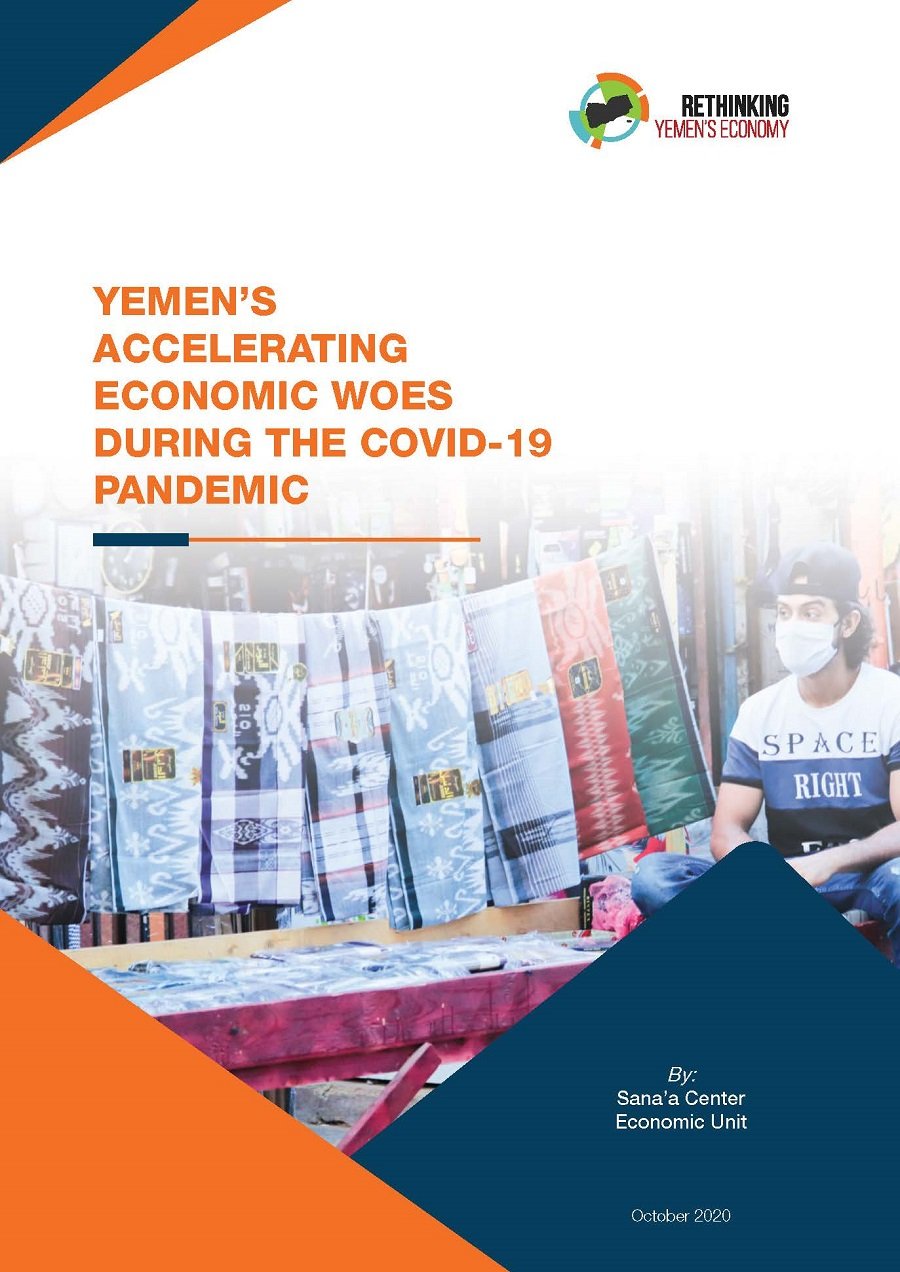

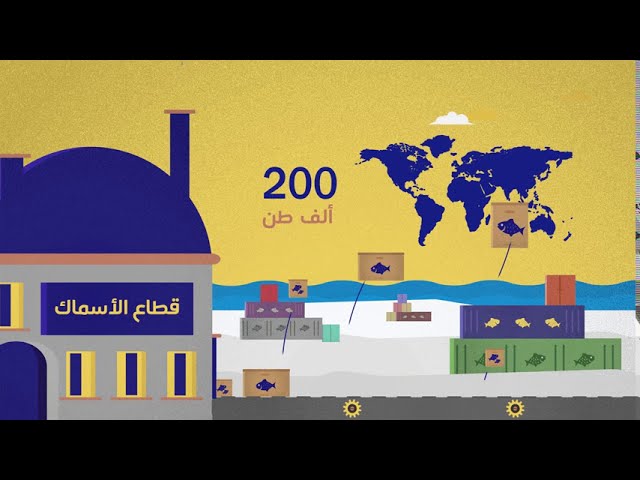
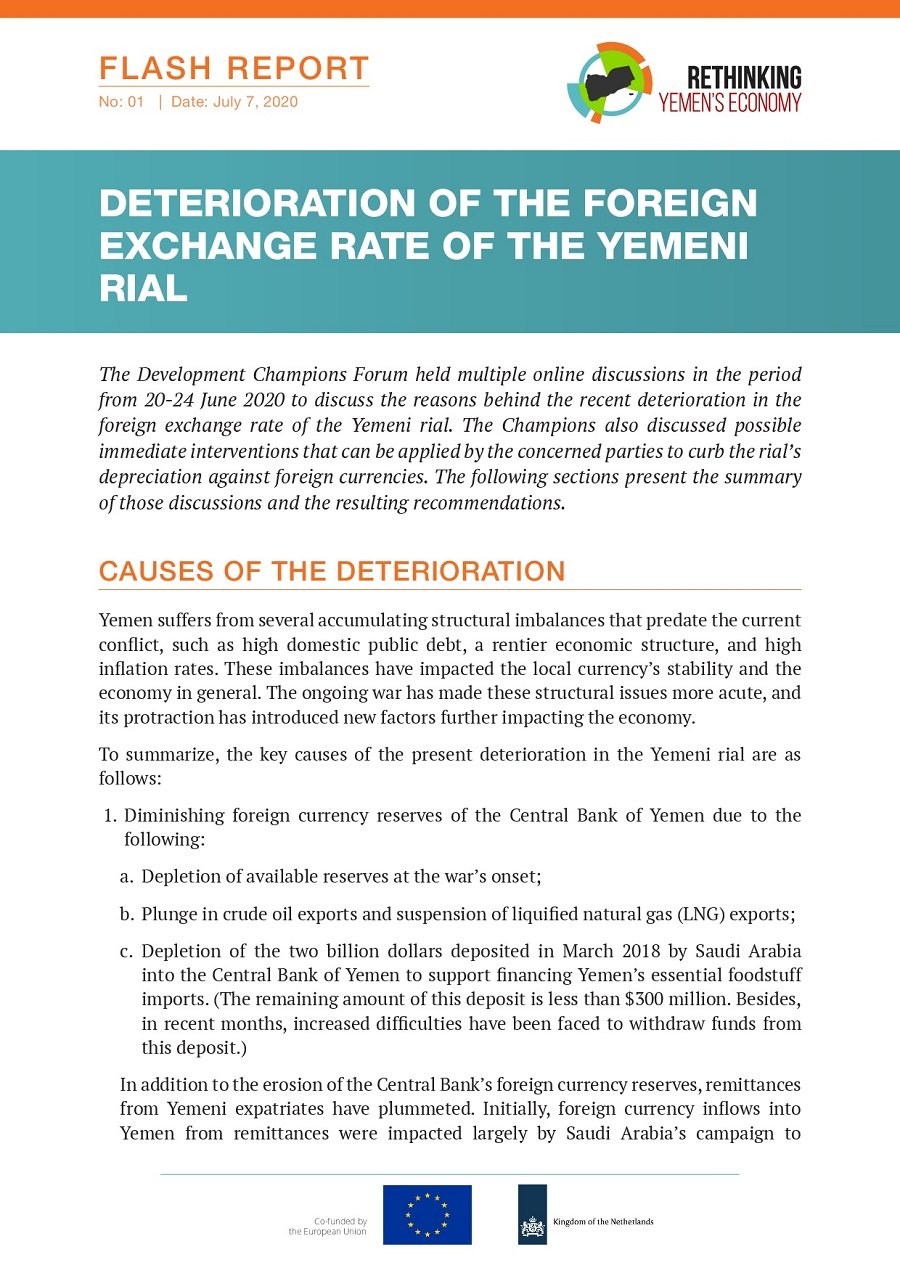
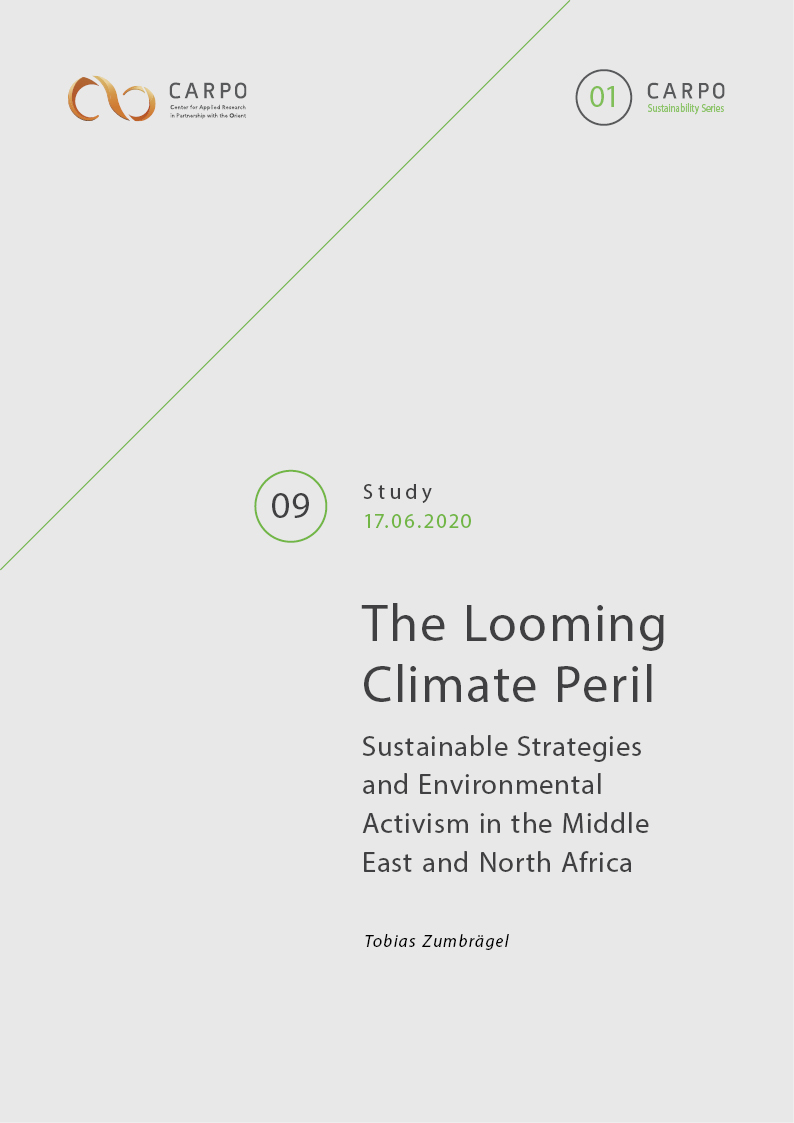





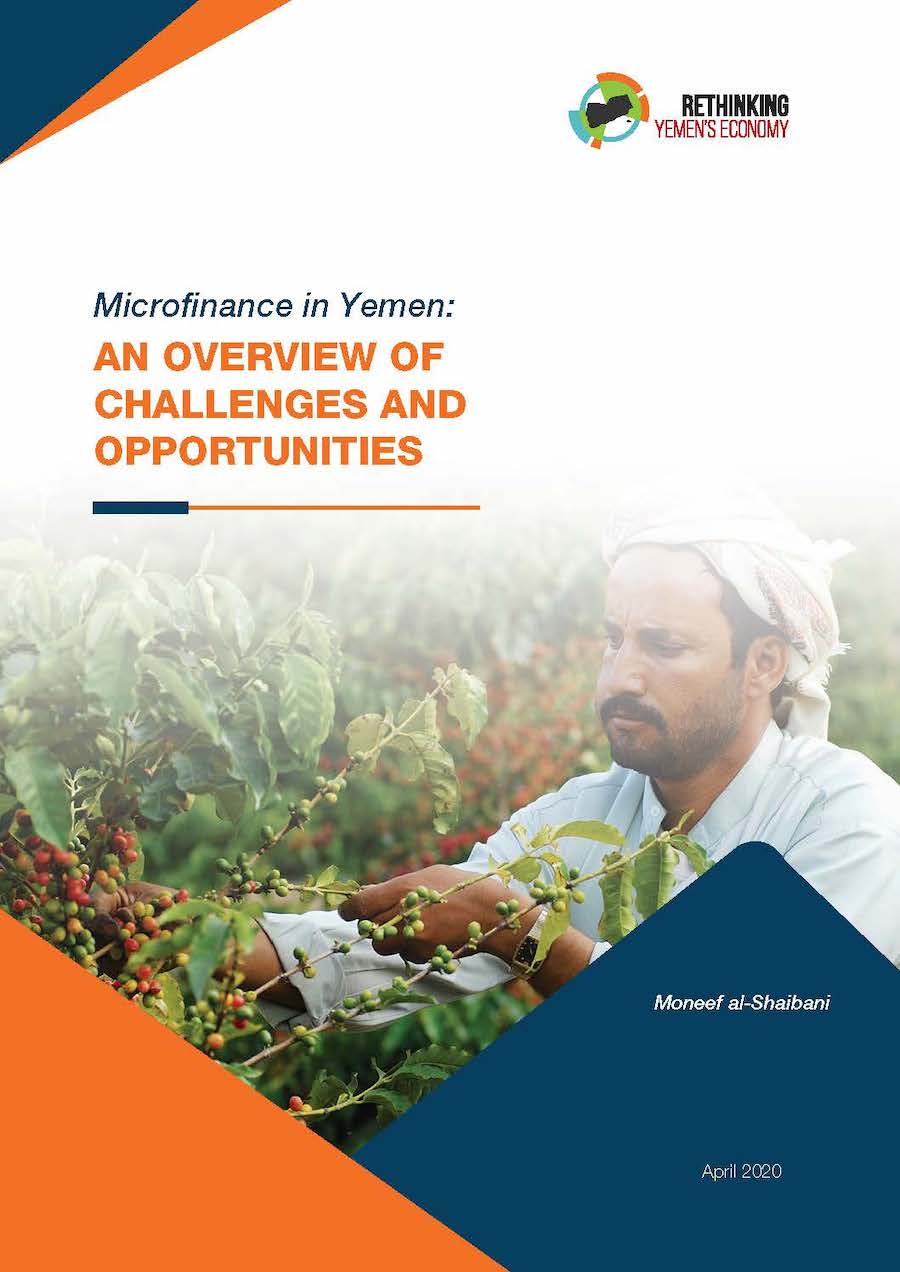


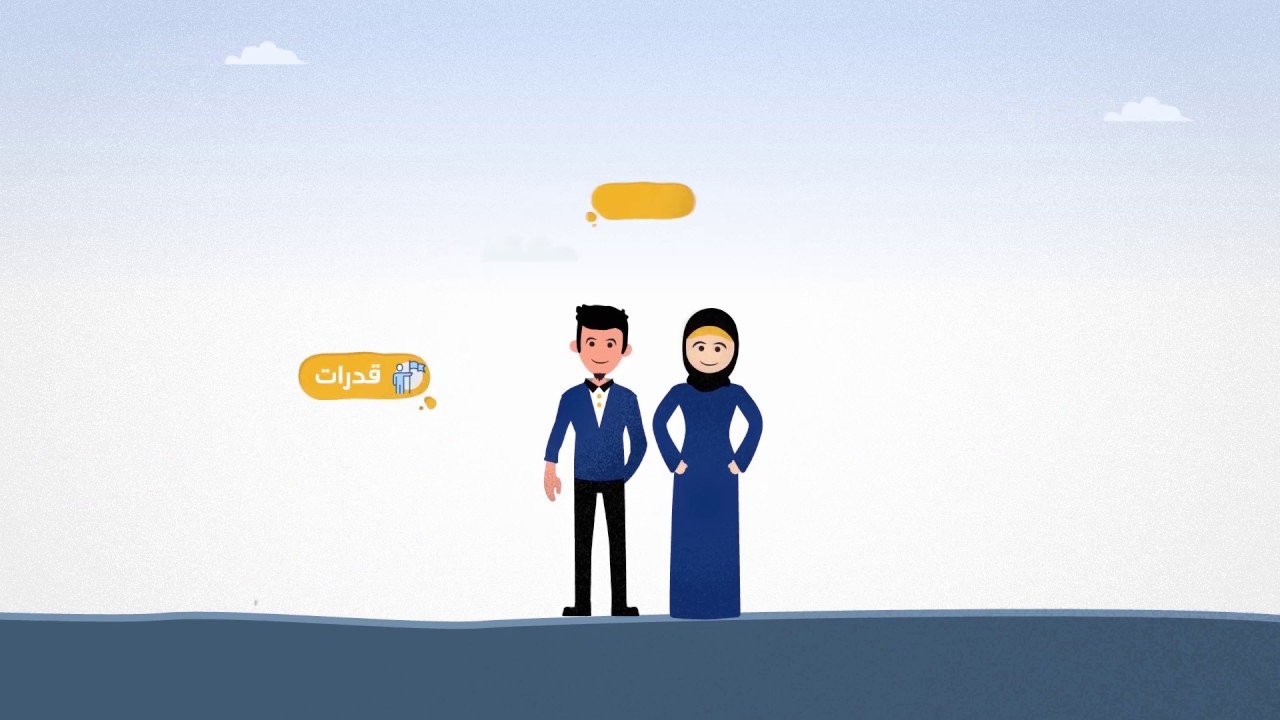
![China’s Strategy in the Persian Gulf. A Balancing Act between Riyadh and Tehran [in German]](https://carpo-bonn.org/wp-content/uploads/2020/04/15_carpo_brief_Cover_900.jpg)
